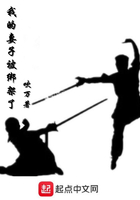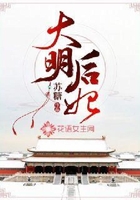164. But since a rational creature cannot be supposed, when free, to put himself into subjection to another for his own harm (though where he finds a good and a wise ruler he may not, perhaps, think it either necessary or useful to set precise bounds to his power in all things), prerogative can be nothing but the people's permitting their rulers to do several things of their own free choice where the law was silent, and sometimes too against the direct letter of the law, for the public good and their acquiescing in it when so done. For as a good prince, who is mindful of the trust put into his hands and careful of the good of his people, cannot have too much prerogative-that is, power to do good, so a weak and ill prince, who would claim that power his predecessors exercised, without the direction of the law, as a prerogative belonging to him by right of his office, which he may exercise at his pleasure to make or promote an interest distinct from that of the public, gives the people an occasion to claim their right and limit that power, which, whilst it was exercised for their good, they were content should be tacitly allowed.
165. And therefore he that will look into the history of England will find that prerogative was always largest in the hands of our wisest and best princes, because the people observing the whole tendency of their actions to be the public good, or if any human frailty or mistake (for princes are but men, made as others) appeared in some small declinations from that end, yet it was visible the main of their conduct tended to nothing but the care of the public. The people, therefore, finding reason to be satisfied with these princes, whenever they acted without, or contrary to the letter of the law, acquiesced in what they did, and without the least complaint, let them enlarge their prerogative as they pleased, judging rightly that they did nothing herein to the prejudice of their laws, since they acted conformably to the foundation and end of all laws- the public good.
166. Such God-like princes, indeed, had some title to arbitrary power by that argument that would prove absolute monarchy the best government, as that which God Himself governs the universe by, because such kings partake of His wisdom and goodness. Upon this is founded that saying, "That the reigns of good princes have been always most dangerous to the liberties of their people." For when their successors, managing the government with different thoughts, would draw the actions of those good rulers into precedent and make them the standard of their prerogative- as if what had been done only for the good of the people was a right in them to do for the harm of the people, if they so pleased- it has often occasioned contest, and sometimes public disorders, before the people could recover their original right and get that to be declared not to be prerogative which truly was never so; since it is impossible anybody in the society should ever have a right to do the people harm, though it be very possible and reasonable that the people should not go about to set any bounds to the prerogative of those kings or rulers who themselves transgressed not the bounds of the public good. For "prerogative is nothing but the power of doing public good without a rule."
167. The power of calling parliaments in England, as to precise time, place, and duration, is certainly a prerogative of the king, but still with this trust, that it shall be made use of for the good of the nation as the exigencies of the times and variety of occasion shall require. For it being impossible to foresee which should always be the fittest place for them to assemble in, and what the best season, the choice of these was left with the executive power, as might be best subservient to the public good and best suit the ends of parliament.
168. The old question will be asked in this matter of prerogative, "But who shall be judge when this power is made a right use of?" I answer: Between an executive power in being, with such a prerogative, and a legislative that depends upon his will for their convening, there can be no judge on earth. As there can be none between the legislative and the people, should either the executive or the legislative, when they have got the power in their hands, design, or go about to enslave or destroy them, the people have no other remedy in this, as in all other cases where they have no judge on earth, but to appeal to Heaven; for the rulers in such attempts, exercising a power the people never put into their hands, who can never be supposed to consent that anybody should rule over them for their harm, do that which they have not a right to do. And where the body of the people, or any single man, are deprived of their right, or are under the exercise of a power without right, having no appeal on earth they have a liberty to appeal to Heaven whenever they judge the cause of sufficient moment. And therefore, though the people cannot be judge, so as to have, by the constitution of that society, any superior power to determine and give effective sentence in the case, yet they have reserved that ultimate determination to themselves which belongs to all mankind, where there lies no appeal on earth, by a law antecedent and paramount to all positive laws of men, whether they have just cause to make their appeal to Heaven. And this judgement they cannot part with, it being out of a man's power so to submit himself to another as to give him a liberty to destroy him; God and Nature never allowing a man so to abandon himself as to neglect his own preservation. And since he cannot take away his own life, neither can he give another power to take it. Nor let any one think this lays a perpetual foundation for disorder; for this operates not till the inconvenience is so great that the majority feel it, and are weary of it, and find a necessity to have it amended. And this the executive power, or wise princes, never need come in the danger of; and it is the thing of all others they have most need to avoid, as, of all others, the most perilous.















